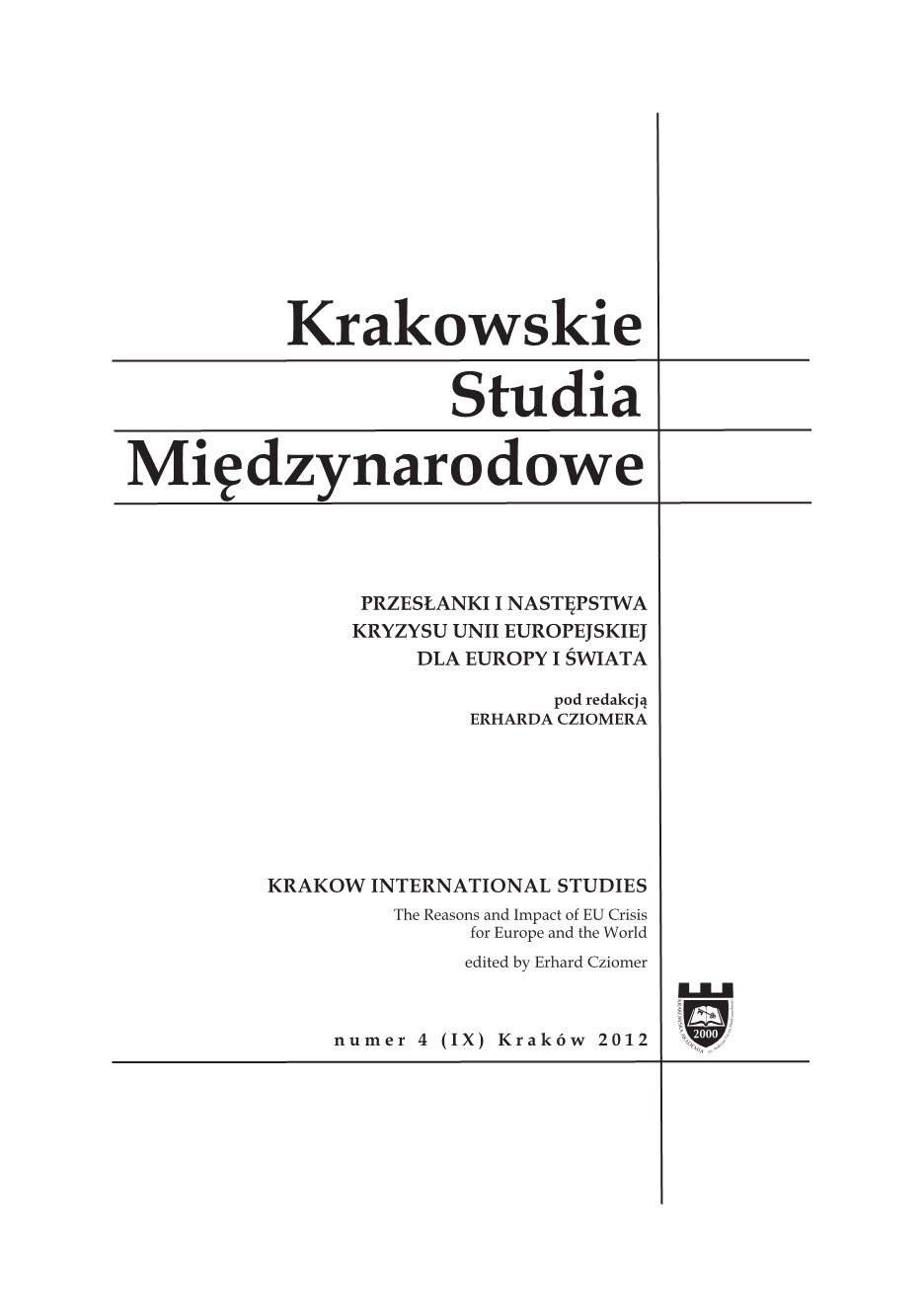Wpływ kryzysu finansowo-gospodarczego na sytuację fiskalną w nowych krajach członkowskich (UE-10)
Recent Financial and Economic Crisis and its Impact on the Fiscal Sustainability the New Member States (EU-10)
Author(s): Edward Molendowski, Piotr StanekSubject(s): National Economy, Supranational / Global Economy, EU-Approach / EU-Accession / EU-Development, Financial Markets, Fiscal Politics / Budgeting
Published by: Oficyna Wydawnicza AFM Uniwersytetu Andrzeja Frycza Modrzewskiego w Krakowie
Keywords: financial crisis; economic crisis; EU
Summary/Abstract: The article undertakes the topic of fiscal sustainability in the New EU Member States in the context of the recent economic crisis. Sharp falls in GDP lead to an increase of the basic indicator of fiscal sustainability: debt to GDP ratio. Additionally, the economic slowdown worsens fiscal balance both because of automatic stabilization mechanism and discretionary government actions. The article presents economic situation in the EU-10 countries directly after the accession. Then, the transmission mechanisms of the global crisis and the related dangers for the EU-10 countries are exposed. An analysis of the business cycle in EU-10 countries and their fiscal position implied by the crisis as well as the fiscal policy actions undertaken with the assessment of their impact for economic growth and fiscal sustainability. Conclusions indicate that the majority of the analyzed countries maintain a sustainable fiscal position in spite of its significant worsening during the crisis. However, the situation of Hungary is very difficult and requires urgent corrective actions and Poland (and to a smaller extent) Slovenia and Slovakia should be cautious in their fiscal policy stance.
Journal: Krakowskie Studia Międzynarodowe
- Issue Year: IX/2012
- Issue No: 4
- Page Range: 49-72
- Page Count: 24
- Language: Polish

